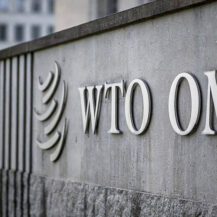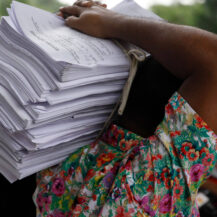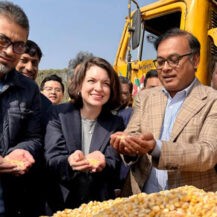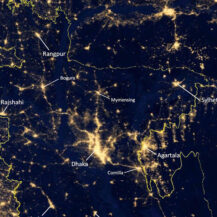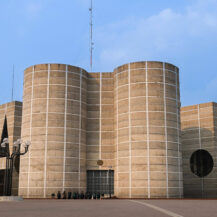The Three Gains of August 5
By
Economists know that political and economic forces are intricately intertwined in real life. Politicians and political processes determine economic policies. So, politics are in command, most of the time. However, when political processes stifle democracy and civil rights and become autocratic, they disrupt and damage the economy in two ways: (1) policies become error prone and there is no process to rectify them; the economy suffers, people suffer and entrepreneurs lose confidence; and (2) autocratic rule stifles initiative and entrepreneurship in the people in general on the one hand; and it enriches the elite and creates cronies and oligarchs close to the autocrat on the other hand. The economy suffers from the misallocation of resources that favour not the more productive, but the more powerful. Society becomes highly unequal and the elite and Government become suppressive and reckless. If these processes are uncorrected, the people suffer, grow resentful and angry at the injustice, and at some unbearable point rise to overthrow the autocrat. That is the story of what happened in Bangladesh in July and August 2024.
August 5 liberated Bangladeshis in at least three ways. First, it restored the people’s citizenship, the first fundamental right in a modern state: the right for people to vote to choose their government and throw them out. At bottom, this right makes the government accountable to the people. Yes, we have learned too well that the right to vote is not enough, which is why we will need significant constitutional reforms.
However, even with its limits fair elections are not abstract for our people. Electoral democracy is intertwined with our history. Bangladesh was born on March 26, 1971, because the Pakistan Government denied the sweeping 1970 electoral victory that sought to provide autonomy and power to the people of East Bengal. Instead, Pakistan sought to crush the people’s voice through violence and genocide. The people led by our Mukti Bahini fought a nine-month war of liberation with relentless fierceness, and finally, with the help of our Indian allies, achieved our liberation.
But the trigger for our liberation was when Pakistan denied our electoral rights. Even earlier in history, our region’s people enthusiastically participated and gave decisive history-changing verdicts in elections. In 1937, they rejected both the Indian Congress and the Muslim League and instead elected Sher-e-Bangla A.K. Fazlul Huq led Krishak-Praja Party to power in Bengal to obtain greater rights for small farmers and tenants. In the 1946 plebiscite, they decisively voted for Pakistan partly to remove landlord and get land rights, which they duly did in the then radical land reforms of East Bengal State Acquisition and Tenancy Act of 1950. The Language Movement of 1952 evolved into a broader movement against the cultural and economic domination of distant West Pakistan and culminated in the 1954 elections when East Bengalis decisively threw the Muslim League out of office. In their place the people elected Fazlul Huq-Suhrawardy led United Front to office. In the 1970 elections, the Awami League received sweeping support from the people as they spearheaded the demand for full autonomy for East Bengal that led to the birth of Bangladesh as discussed above. After an interregnum, in 1990 Bangladeshis again rose in revolt against the military dictator General Ershad and restored democracy. They then participated wholeheartedly in close competitive elections in 1991, 1996, 2001, and 2009. After that, however, the electoral rights were taken away through holding three sham elections. 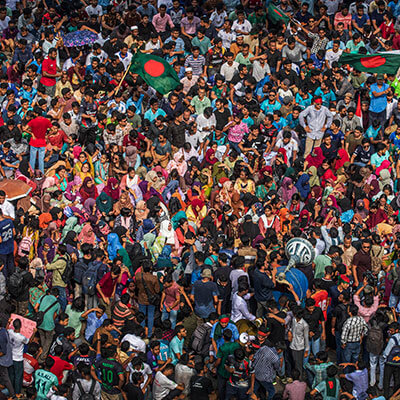
Despite that, electoral democracy is in our blood even today. Those who followed the TV news coverage of the January 2024 pretend-elections will remember that our youth, even those in their early 30s, poignantly stated that they have never had a chance to vote. It is a profound point that Prof. Yunus has also made to the foreign press in explaining the force behind the July-August insurrection. The resentment of being deprived of the right to vote ran deep and wide among the working people of both urban and rural areas. After all, voting in elections is the one right, and election day is the one day where all people are truly equal.
The second gain of August 5 was our freedom from the lawless rule by a violent autocratic government. That was a rule where those in power, politically and administratively, from the highest levels to the local organisers – could do whatever they wanted with impunity. They collected tolls and bribes, arrested people under draconian laws or without any legal process, and then, in several cases, abused them and made them ‘disappear.’
In the end, this autocratic government, drunk with power, decided it could order ‘shoot on sight’ to kill its people. And so it did, killing nearly a thousand people and maiming and blinding thousands of others in the July-August uprising. It happened because a government mad with hubris and the greed-cum-fear of losing trillions of Takas of corruption-begotten wealth had lost contact with reality.
Third, August 5 liberated us from a highly corruption-driven, highly unequal economy where the government, oligarchs, and crony capitalists were bringing economic ruin. It has been highly frustrating for economists like me in the last few years to point out that beneath the glitz and lavish lifestyles of the crony capitalists and oligarchs, the fundamentals of the economy were cripplingly weak. Our economy under the past autocratic regime reminded me of the Titanic disaster: the economy was like that ship sailing at speed with lights blazing, bands playing, and lavish parties of the rich going on the upper deck, while below the water level, the hull was punctured in several places.
Our economy under the past autocratic regime reminded me of the Titanic disaster: the economy was like that ship sailing at speed with lights blazing, bands playing, and lavish parties of the rich going on the upper deck, while below the water level, the hull was punctured in several places.
Ultimately, an economy runs and grows from two forces: the work and productivity of its people and its capital. Under the last regime, the financial sector – the nerve centre of the economy that mobilises and distributes capital – was shallow and was becoming shallower. Compared to other countries, financial banking and credit were exceptionally low and poorly distributed. Private credit stock as a share of GDP was steadily declining in the past few years and at 33% was far less than the 50% ratio for India and about 125% of GDP for Vietnam and Cambodia. And worse, the financial sector was becoming dangerously vulnerable to failure. It was looted through white-collar financial shenanigans of loan defaults and by outright physically coercive takeover. Probably uniquely in the world, a single individual was allowed to own five banks whose deposits were merrily looted.
Private investment became shy, and foreign investment was virtually absent at a time when it was pouring into India and Vietnam. Public investment increased markedly but in a scattershot way without proper evaluation, creating white elephants that became a conduit for grand-scale corruption. One sad example is the significant investments in power generation that have simultaneously resulted in more than 30 percent excess capacity and financial bankruptcy. While we still suffer from blackouts, the public has to fund a $ 3 billion deficit.
In human capital, the education system was in disarray. Over a fourth of our teachers are untrained, and hundreds of primary schools lack a headmaster, resulting in low-quality learning. Bangladesh students ranked near the bottom of countries in terms of learning competency. Although Bangladeshis had 11 years of schooling on paper, in reality, it was only six years due to poor quality. Additionally, technical and vocational communication for students was neglected, leaving the economy without critical technical skills. Similarly, the inadequacy of higher education was evident in the 30% unemployment rate of national university graduates. At the same time, we needed to employ a large number of foreign workers and pay them billions of dollars in salary because it provided us with the technical and managerial skills our education system could not provide.
And then there was the rise of the oligarchs under the last regime, which stifled competition, the lifeblood of a dynamic economy. They prospered through the largesse of public sector contracts, loan defaults, tax forgiveness through so-called ‘whitening’ provisions in the budget, and land grabbing.
They also enjoyed the protection of the walls of high tariffs and supplementary taxes of more than 25% – the highest in the region and much higher than the ASEAN tariffs of 6 or 7% – so they could enjoy high profits in a captured domestic market. Not surprisingly, the not-so-efficient capital-intensive industry grew up owned by these oligarchs who also crowded out small and medium enterprises. They had little incentive to become competitive and compete internationally in exports. Not surprisingly, we lost ground in international markets. In 2012, exports made up 20% of our GDP. Ten years later, exports make up only 13%. And this while, here is the shocker: India and Vietnam have export-GDP ratios of 22% and 94%.
Around 2010–11, Bangladesh had the global reputation of an emerging East Asia-like manufacturing tiger – often mentioned side by side, in the same breath, with Vietnam. Instead, today, Vietnam has become a rocketing star with highly diversified exports from electronics to agro-processing. Bangladesh, however, has become an undiversified excessively ready-made-garments concentrated exports and remittance dependent economy on the one hand. On the other hand, it has turned into another low-competitive, tariff-protected, oligarch-dominated, inward-looking, highly unequal South Asian economy.
With falling competitiveness, manufacturing, and urban employment growth markedly fell. Real wages have been on the decline for several years now. Without productive employment opportunities, good earnings, and quality education and technical training, we now risk missing the demographic dividend that a young population brings. Deprived of opportunities, the young population’s aspirations can become resentment and social unrest; a demographic dividend can become a demographic disaster.
But what of the high growth rates of about 6% p.a. that we saw under the past regime? The perfect analogy is that it was like Pakistan’s Ayub Khan’s decade of development from 1958–68; it was of poor quality, unsustainable, and ultimately, a chimera. Highly skewed towards the wealthiest 22 oligarch families, excessively regionally concentrated and unequal, it ended up breaking Pakistan. There are other examples around the world, too.
In Bangladesh’s case, growth is mainly owed to the hard-earned foreign exchange earnings of our exporters and the seven to eight million expatriate workers, the rise of manufacturing, entrepreneurially minded people supported by thousands of NGO workers, and the sweat of our farmers. But growth was also debt driven. Our entire public sector investment was debt-financed, including several over-charged and over-leveraged mega public sector projects. Yes, oligarchs and officials also made profits from it. However, such growth is a chimera, without fundamentals, and unsustainable, as is evident from the sharp slowdown of the economy in the last few years.
The gains of liberation are evident not only in avoiding disasters brought about by past rule but also in the forward movement already made by the new government. The Bangladesh Bank has embarked on an aggressive monetary policy of raising policy rates to reduce inflation and trade deficits, while increasing reserves. It has made it clear that it would not intervene to sell dollars in the market or print money. The Boards of the weakest banks – some insolvent – have been reconstituted to prevent further raids on the balance sheet. At the same time, a Banking commission has been set up to identify mergers and acquisitions and other strategies to protect depositors.
The Finance Ministry is on track to significantly reduce deficits and government borrowing not to put pressure on interest rates and inflation and crowd out the private sector. The Planning Ministry has taken steps to prioritise development spending and, in a much welcome step, announced that its future emphasis would be on human capital investment.
In education, our Advisor brought relief by decisively rejecting the radical new curriculum introduced by the last government that was highly unsuited for the country. Emphasis has been placed on technical training, an area where Bangladesh lags far behind other countries. In environment and water, there is clarity and commitment by our experienced Advisor to rescue our dying rivers and harness them.
The Chief Justice has also presented bold reforms to constitute a separate secretariat for the judicial system. Implementing this step along with financial independence will be necessary to firmly establish the independence of the judiciary from the executive, a cornerstone of democracy and the rule of law.
As the Chief Advisor has mentioned, if there is a brand name for the Interim Government, it is Reforms. Many of these reforms have already started. More are in preparation. The task now will be to deepen and protect the reforms so that the gains of the August liberation to restore democracy and rescue the economy will last.
An earlier version of this article was published in the Daily Star

